Putin Says Ready For Compromise After Talks With Macron On Ukraine
Russian President Vladimir Putin said he was ready for compromise and would look at proposals put forward by French leader Emmanuel Macron during talks on Monday, while still blaming the West for raising tensions over Ukraine.
Emerging from a meeting in the Kremlin that lasted more than five hours, the two leaders voiced hope that a solution could be found to the worst crisis between Russia and the West since the end of the Cold War.
Moscow has amassed tens of thousands of troops on the borders of Ukraine, raising fears that it is preparing a possible invasion of its pro-Western neighbour.
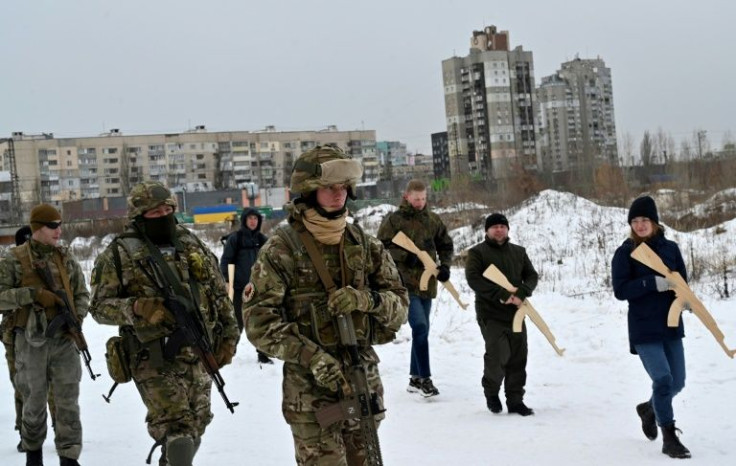
The West has repeatedly warned of "severe consequences" if Russia invades, and Macron was the first major Western leader to meet with Putin since the start of the crisis in December.
Repeatedly thanking the French leader for coming to Moscow, Putin said at a joint press conference that Macron had presented several ideas worth studying.
"A number of his ideas, proposals... are possible as a basis for further steps," Putin said, adding: "We will do everything to find compromises that suit everyone."
He did not provide any details but said the two leaders would speak by phone after Macron meets with Ukrainian President Volodymyr Zelensky in Kyiv on Tuesday.
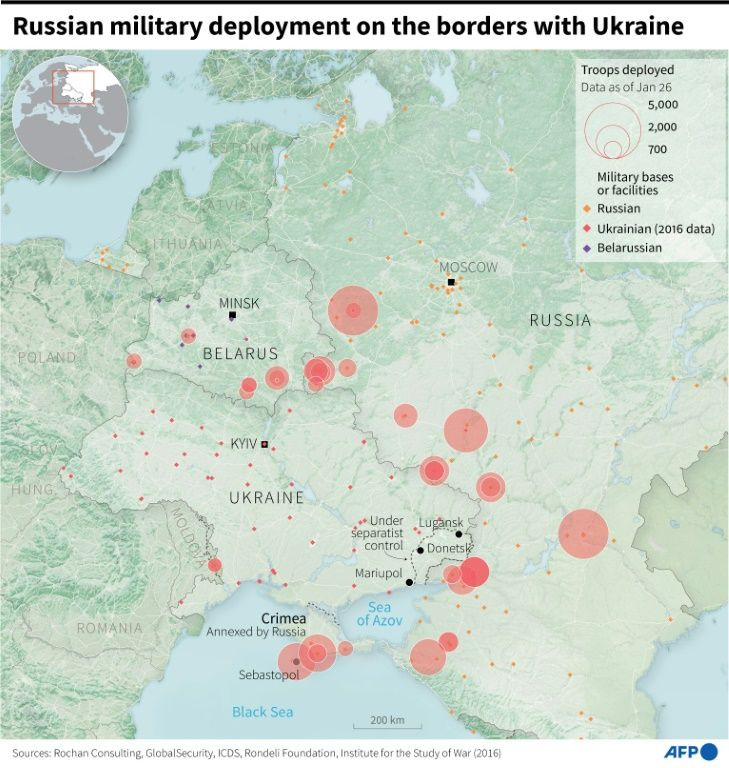
Macron said he made concrete proposals to address the concerns of both Russia and the West.
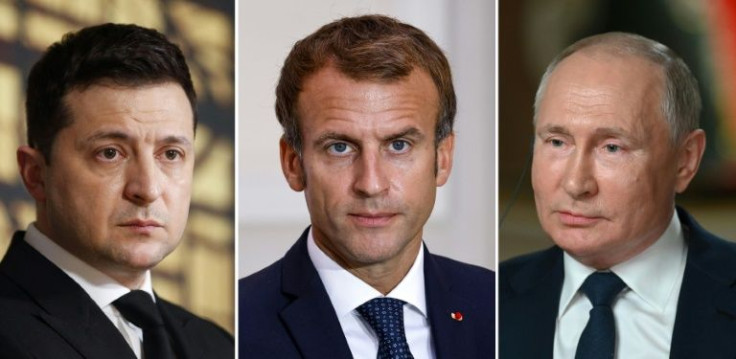
"President Putin assured me of his readiness to engage," Macron said, adding: "There is no security for the Europeans if there is no security for Russia."
The French presidency said the proposals include an undertaking from both sides not to take any new military action, the launching of a new strategic dialogue and efforts to revive the peace process in Kyiv's conflict with Moscow-backed separatists in the country's east.
Putin again denied that Russia was to blame for the tensions.
"Saying that Russia is acting aggressively is illogical," Putin said.
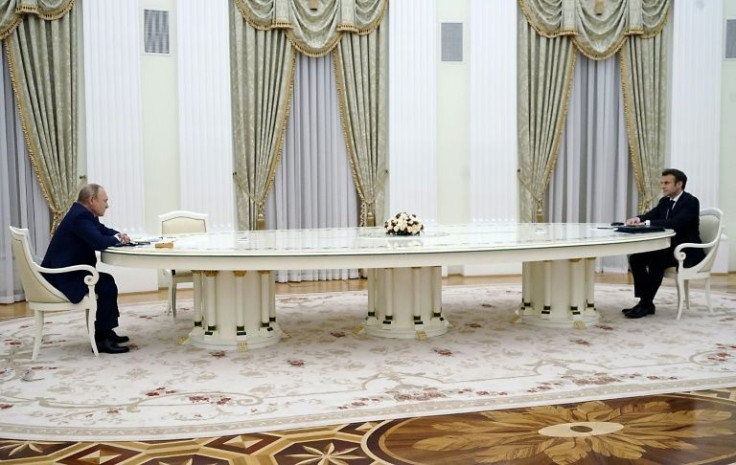
"It is not us who are moving towards NATO's borders," he said, in reference to alliance deployments in eastern Europe.
The meeting in Moscow came at the start of a week of intense diplomacy over the Ukraine crisis, with US President Joe Biden also hosting German Chancellor Olaf Scholz in Washington on Monday.
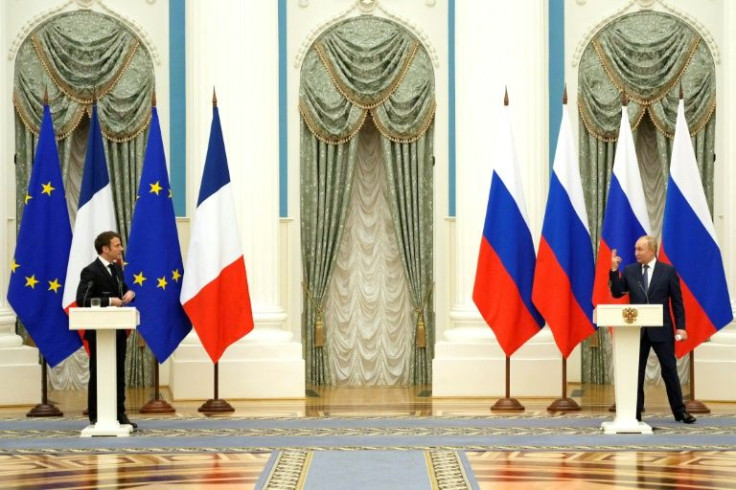
Biden made a categorical vow at the talks to shut down the controversial Nord Stream 2 gas pipeline from Russia to Europe if Moscow sends forces across the Ukrainian border as it did during the 2014 annexation of Crimea.
"If Russia invades -- that means tanks or troops crossing the border of Ukraine, again -- then there will be no longer a Nord Stream 2," Biden told a joint White House news conference with Scholz.
"I promise you," Biden said, "we will bring an end to it."
US officials say Moscow has assembled 110,000 troops near the border with Ukraine and is on track to amass a large enough force -- some 150,000 soldiers -- for a full-scale invasion by mid-February.
Macron on Monday cited a figure of 125,000 Russian troops.
Russia insists it has no plans to attack and has instead put forward its own demands for security guarantees.
It is demanding a permanent ban on Ukraine, a former Soviet republic, joining the US-led alliance and that the bloc roll back its military presence in eastern Europe.
Macron, whose country currently heads the European Union, has tried to position himself as the key EU figure in negotiations with Russia.
Germany's new government has come under criticism from Ukraine and some in the United States over accusations that it is not fully engaging with US-led efforts to push back against Russian military pressure on Ukraine.
Scholz said he and Biden were "absolutely united" on sanctions against Russia, though he repeatedly avoided mentioning the Nord Stream 2 pipeline by name.
Biden has reacted to the Russian troop build-up by offering 3,000 American forces to bolster NATO's eastern flank, with a batch of the troops arriving in Poland on Sunday.
Britain said Monday that 350 more British troops would be sent to the Polish border and Germany announced that another 350 of its soldiers would go to Lithuania.
Scholz himself will be in Moscow and Kyiv next week for talks with Putin and Zelensky.
Visits to Moscow by the British foreign and defence secretaries are also expected at the end of this week.
© Copyright AFP 2024. All rights reserved.





















